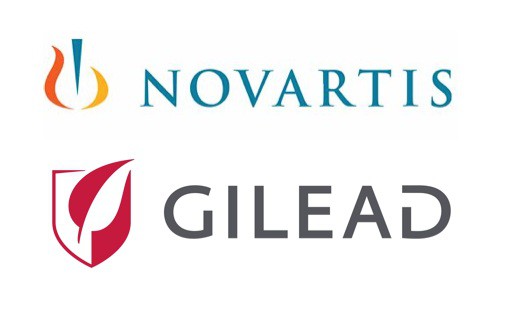
Novartis and Gilead/Kite have picked up EU approvals for their CAR-T therapies for blood cancers from the European Commission, but there is already debate over their ability to meet patient demand.
Novartis’ Kymriah (tisagenlecleucel) has been approved for use in patients under the age of 25 with B-cell acute lymphoblastic leukaemia (ALL) refractory to treatment, in relapse after a transplant or in second or later relapse, and also for adults with relapsed or refractory diffuse large B-cell lymphoma (DLBCL).
Meanwhile, Gilead/Kite’s Yescarta has been approved for the same DLBCL indication and also for primary mediastinal large B-cell lymphoma in patients who have been given two or more lines of systemic therapy. Both therapies were recommended for approval by EMA in June, months after being given the green light by the US FDA. Kymriah was launched in the US in May 2017 and Yescarta in October.
Novartis said it would initially start making Kymriah available to children with ALL in Europe, with adults with ALL and DLBCL patients having to wait for access, as it builds capacity to deliver the new therapy. It’s been struggling with production issue for the CAR-T since its US launch, specifically variability in product specifications that in some cases have led to manufacturing failures.
Gilead has a dedicated manufacturing facility for Yescarta from its acquisition of Kite last year, and seems to have been able to meet US demand more efficiently. Sales of its therapy reach $68m in the second quarter of 2018, versus $16m for Kymriah, although Novartis only picked up its US approval in DLBCL – a larger indication than ALL – in May this year.
CAR-T involves removing disease fighting T-cells from cancer patients, modifying them to attack malignant cells, expanding their numbers and then re-infusing them as a one-off treatment procedure – a procedure that currently takes two to three weeks. That makes the therapy much more labour-intensive – and prone to error – than conventional cancer drugs.
Novartis says the roll-out of Kymriah in Europe will vary from country to country as it develops an “infrastructure for delivering CAR-T cell therapies where none existed before.” That includes selecting treatment centres, training staff in CAR-T therapy and of course the usual national reimbursement deliberations.
Both Novartis and Gilead are setting up new production facilities to help meet the demand for their CAR-Ts. The former is investing around $90m in new capacity at a plant in Switzerland, while Gilead has leased a new facility in the Netherlands to bolster capacity. However, both aren’t scheduled to start supplying commercially until 2020. Meanwhile, Novartis says it has expanded an alliance with Germany’s Fraunhofer Institute and signed an agreement with French contract manufacturer CELLForCURE to expand its manufacturing options.
Nevertheless, Novartis’ staggered roll-out gives Gilead a free run at the DLBCL market for the time being. The US biotech says it intends to authorise more than 20 centres for Yescarta therapy in the EU by the end of 2018, with its initial launch efforts “primarily focused on Germany and France.”




